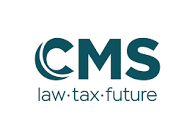Towards the end of last year, there was a whirlwind of activity around the future of cryptocurrency regulation in the UK. These developments pave the way for a more inclusive, efficient and innovative digital economy and are intendedto enable the UK to attract more talent and investment and fulfil ambitions of being a hub for the cryptoasset industry.
While the new requirements will not enter into force until 2026, firms that are affected by these changes should be aware of developments, follow/engage with the consultations that will be published during 2025, and start planning to comply with the new requirements. We discuss the latest key developments in crypto regulation below.
Keynote speech
On November 25, 2024, Economic Secretary to the Treasury, Tulip Siddiq, delivered a keynote speech at the Tokenisation Summit in which she outlined the UK government’s approach to tokenisation and regulation and confirmed its intention to proceed with the previous government’s proposals to regulate cryptoassets.
Key takeaways from the keynote speech:
- Cryptoasset regulation: HM Treasury’s (HMT) proposals for the financial services regulation of cryptoassets in the UK, published in October 2023, still stand and the newly elected government intends to implement them in full. Proposals include creating various new regulated activities for cryptoassets (such as operating a cryptoasset trading platform) and associated regimes for admissions to trading and market abuse. The government aims to engage firms on draft legal provisions for the cryptoasset regime including stablecoins “as early as possible” in 2025.
- Stablecoin regulation: Importantly from a timing perspective, the government rejected HMT’s proposed phased approach and now intends to implement the new regulated activities for stablecoin at the same time the rest of the cryptoasset regulatory regime, for simplicity. Stablecoin issuance as a regulated activity will enable the FCA to manage stablecoin-specific risks, particularly those associated with the management of backing assets. The government will not bring stablecoins into the scope of UK payments regulations as it believes doing so would impose additional regulatory burdens on certain stablecoin activities that would be disproportionate based on current use cases.
- Cryptoasset staking services: The government has addressed the uncertainty over whether cryptoasset staking services constitute a Collective Investment Scheme (CIS) under financial services law, clarifying that they will not be considered a CIS and confirming that it will proceed to remove this legal uncertainty accordingly. This is a welcome clarification and should provide certainty to the industry.
FCA publications
Tulip Siddiq’s speech was closely followed by several publications from the FCA the day after.
- In 2024, the FCA held a series of roundtables with stakeholders to help guide its approach to regulating crypto and has published a blog on the key areas that were discussed.
- Alongside this, the FCA published a research note on consumers’ understanding of cryptoassets, as well as their attitudes and behaviors towards it.
- In a related press release, the FCA stated that the results of this research showed a continued rise in cryptoasset ownership and also highlighted an issue in relation to significant gaps in consumer knowledge and misconceptions held relating to cryptoassets. The FCA also said that its research underscores the necessity of “clear regulation that supports a safe, competitive, and sustainable crypto sector in the UK.”
- The FCA also published a new webpage on cryptoasset financial promotions, which sets out steps that FCA regulated or registered firms should take when partnering with and providing services to unregistered cryptoasset firms, including those that are based overseas, who may be illegally promoting cryptoassets in the UK.
The FCA also unveiled an indicative roadmap of key dates for the development and introduction of the UK’s crypto regime. The roadmap provides much-awaited insight into the direction of cryptoasset regulation, setting out a series of focused consultations that target different aspects of the future regime.
The first discussion paper was published in December last year and related to admissions, disclosures and the market abuse regime for cryptoassets. According to the roadmap, the FCA anticipates all consultation papers, policy statements and final rules to be published in 2025 / 2026 and the new regulatory regime to go live shortly after.

Commentary and next steps
These developments mark a significant milestone in the evolution of the UK’s crypto regime. With the EU’s Markets in Crypto-Assets Regulation (MiCA) provisions relating to cryptoasset service providers entering into force on December 30,2024, and the House of Representatives passing the US’s draft crypto bill, Financial Innovation and Technology for the 21st Century Act (FIT 21), it is crucial that the UK also implements robust crypto regulation to fulfil the UK’s ambitions of being a hub for the cryptoasset industry.
Cryptoasset firms and prospective market entrants should welcome the regulatory clarity these recent developments provide and consider how they may be affected. Firms will then be able to meaningfully engage with the FCA in relation to future FCA publications and properly prepare for the new regulatory regime.
Key contacts: Sam Robinson, Chris Glennie, Mike Ringer, Susann Altkemper, Yasmin Johal, Lydia Carstensen and Justin Kwik.
CMS has leading experts within the digital assets space. If you have any questions about how these developments could affect your firm or require further guidance, we encourage you to get in touch with the key contacts listed, or your usual CMS contacts, who would be happy to discuss these considerations in more detail.


















